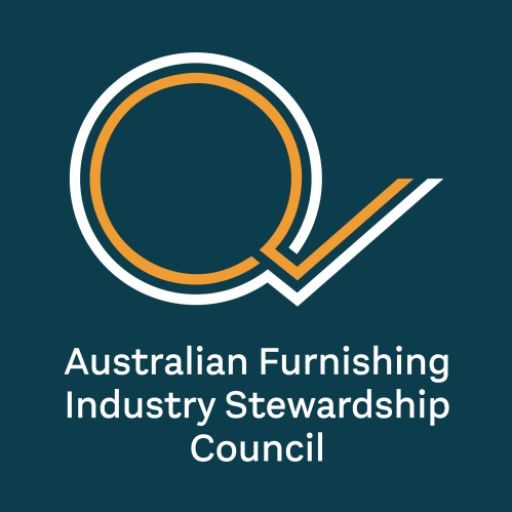A recent article published by TimberBiz highlighted a sharp rise in imported timber volumes, raising concerns around the need for better labelling and supply chain transparency. The Australian Furniture Association (AFA) and the Australian Furnishing Industry Stewardship Council (AFISC) agree that this issue extends deeply into the furniture industry, where both rising furniture imports and the widespread use of imported timber in production have amplified concerns around sustainability, traceability, and compliance with Australian standards.
The Australian Furniture Association (AFA) and the Australian Furnishing Industry Stewardship Council (AFISC) emphasise the urgent need for stronger verification systems to ensure that imported furniture and materials meet Australian sustainability benchmarks. Without clear labelling and traceability, imported furniture often lacks information about the origins of its materials, chemical safety, and compliance with national environmental standards. These gaps can pose significant risks for large-scale procurement contracts, such as those across the Department of Defence, where sustainability and responsible sourcing are increasingly scrutinised.
Rising Imports and Quality Concerns
The surge in imported furniture and reliance on imported timber often results in lower-quality products, many of which fail durability expectations and contribute to the growing issue of fast furniture — cheap, disposable items that frequently end up in landfill. Limited traceability also raises concerns about whether timber used in these products is responsibly sourced or contributes to deforestation and biodiversity loss.
The rising import of hardwood products, particularly from countries like Indonesia and Malaysia, underscores Australia’s increasing dependence on offshore materials. The reduction of native forestry operations in Victoria and Western Australia has led to the loss of local jobs and economic activity while undermining Australia’s leadership in sustainable forestry management, which plays a vital role in carbon storage and climate action.
Data from the Australian Bureau of Statistics (ABS) shows a significant rise in hardwood imports, with the value of imports from Indonesia increasing substantially over the past decade, peaking during the housing boom in 2020 and remaining elevated despite recent market shifts. Similarly, imports from Malaysia have more than doubled during the same period, further emphasising the need for stronger traceability measures and responsible sourcing practices.
To support businesses in addressing these challenges, the AFA Timber Due Diligence Toolkit provides essential guidance on verifying responsible timber sourcing and ensuring alignment with Australian standards. The toolkit helps businesses assess the origin of materials and reduce procurement risks related to imported timber products.
The Need for Greater Transparency
The lack of clear labelling and traceability in imported timber and furniture products presents a significant challenge for both businesses and consumers. Greater visibility into material origins, sustainability credentials, and ethical sourcing practices is essential to ensure responsible procurement and safeguard the Australian market against products that fail to meet national standards.
In the TimberBiz article, Diana Hallam, CEO of the Australian Forest Products Association (AFPA), stressed the importance of consumer awareness, stating, “It raises the point that many Australians probably aren’t aware of where their timber products are coming from, highlighting the need for ‘country of origin’ labelling reform to inform consumers.” This lack of transparency makes it challenging for both businesses and consumers to make informed, responsible purchasing decisions that align with sustainability goals.
The Need for Systems Like FPAS
To address these challenges, AFISC is developing the Furniture Passport Australia System (FPAS) — a digital product passport designed to provide full supply chain traceability and help Australian businesses meet evolving procurement standards.
FPAS will offer a proactive solution by:
- Enhancing Transparency: Delivering verifiable data on material origins, chemical safety, and sustainability compliance.
- Promoting Circularity: Tracking recyclable materials, repairability, and end-of-use strategies to minimise waste.
- Simplifying Compliance: Streamlining sustainability reporting to help businesses meet government procurement standards and circular economy goals.
Strengthening Industry Collaboration
AFA and AFISC urge businesses in the furnishing industry to prioritise verified sustainability practices and adopt systems like FPAS while utilising the Timber Due Diligence Toolkit to ensure full traceability and compliance. With the rise in sustainability reporting requirements and growing demand for transparency, collaboration across the supply chain is critical for businesses seeking to secure government contracts while promoting responsible practices.
For further information on how the Furniture Passport Australia System (FPAS) and the Timber Due Diligence Toolkit can help your organisation meet sustainability standards and prepare for the increasing sustainability reporting requirements, contact us at care@afisc.com.au Verify Before You Buy – Explore the AFA Member Directory at https://australianfurniture.org.au/find-an-accredited-supplier/ for trusted and reputable furniture suppliers.ustralian furniture sector.

